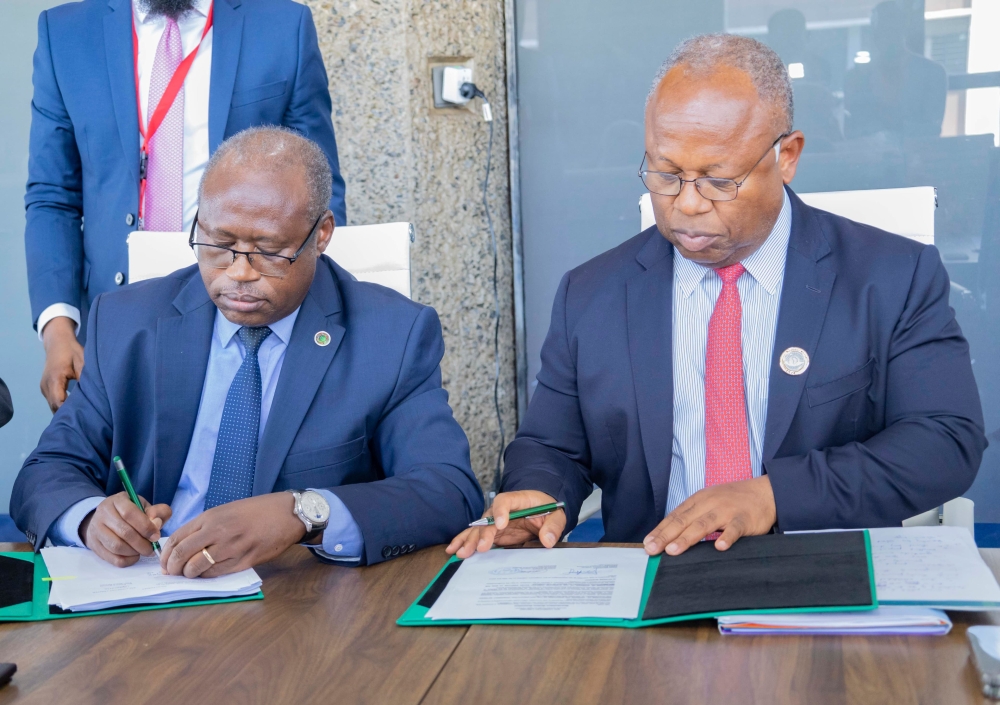

The construction works for the Kigali Innovation City, Rwanda’s major project in building an innovation ecosystem on the continent, are expected to begin in September.
It was previously scheduled to start in 2022.
ALSO READ: Kigali Innovation City master plan unveiled
The development was announced on May 31 during the signing of implementation agreement by Finance Minister Uzziel Ndagijimana on behalf of the government of Rwanda and Alain Ebobissé Chief Executive Officer of Africa50, a pan-African infrastructure investment firm.
It took place on the sidelines of the African Development Bank Annual Meeting in Nairobi, Kenya, of which Ndagijimana was attending.
The cost of the infrastructure development of the project set to position Kigali as a regional innovation hub is estimated at $300 million, and it will be located near the Special Economic Zone.
According to its masterplan launched in 2021, the City will be situated on 61 hectares of land, and will have world-class universities, office spaces, and start-up business incubators, technology companies, biotech firms, alongside supporting facilities for retail, hospitality and accommodation.
Currently, three infrastructures that are part of the city are already in place, including the African Leadership University, Carnegie Mellon University-Africa campus, and a University of Rwanda campus.
At the signing ceremony, Ndagijimana said the agreement will help fast-track the implementation of the project, commending the technical efforts invested in framing it.
"KIC is one of the flagship projects in Rwanda which will greatly contribute to our strategy to promote digital technologies and our mission to build a knowledge-based economy.”
Ebobissé noted that the innovation city will set Africa not only as a continent that consumes technology but produces it as well, adding that the signed agreement will complete the legal framework for the project’s bankability.
"We can now move to the next step of completing the financing and start construction. It is expected to start by September, realistically speaking. We are ready to move forward with this project.”
"We need to have a culture of delivering things on time,” he noted.
Africa50’s support in infrastructure and facilities will allow the setup of an innovation ecosystem where local companies and multinationals can come together to build innovations that can provide solutions for the continent and beyond, said Paula Ingabire, Minister of ICT and Innovation.
"We are very excited about this partnership and the potential to support startups across the continent,” she added.
Francis Gatare, Chief Executive of Rwanda Development Board, said that the partners involved have remained committed to the realization of the project, despite the long time it has taken.
"We now shift to the implementation. There can no longer be discussions but a collective focus to get it done.”
Under the implementation framework, the project has attracted additional partners including the Arab Bank for Economic Development in Africa (BADEA), and other development finance institutions as well as private sector lenders.
KIC is expected to generate $150 million in ICT exports annually and attract more than $300 million in foreign direct investments, in addition to creating over 50,000 jobs upon its completion.
Also worth noting is that it is expected to have more than 2,600 students graduating annually from its universities over 30 years, adding to Rwanda’s and Africa’s pool of tech-savvy entrepreneurs.


